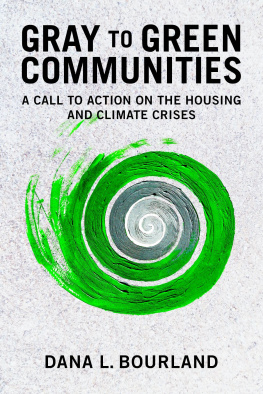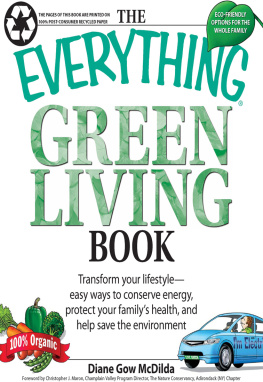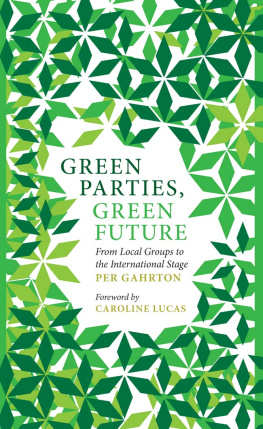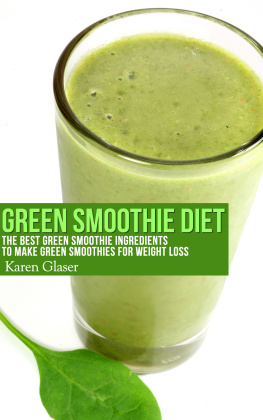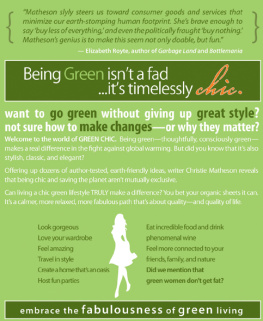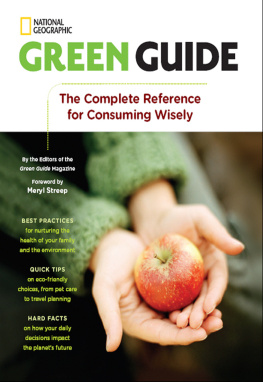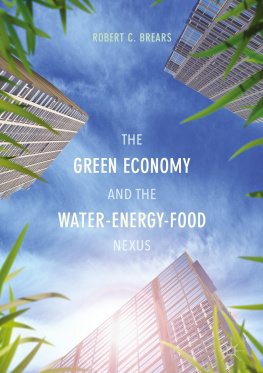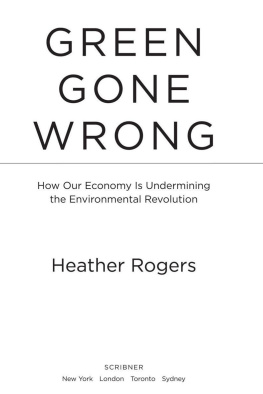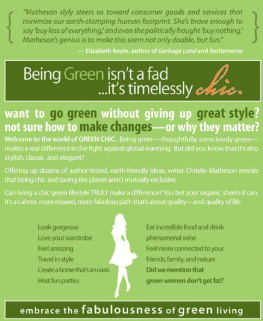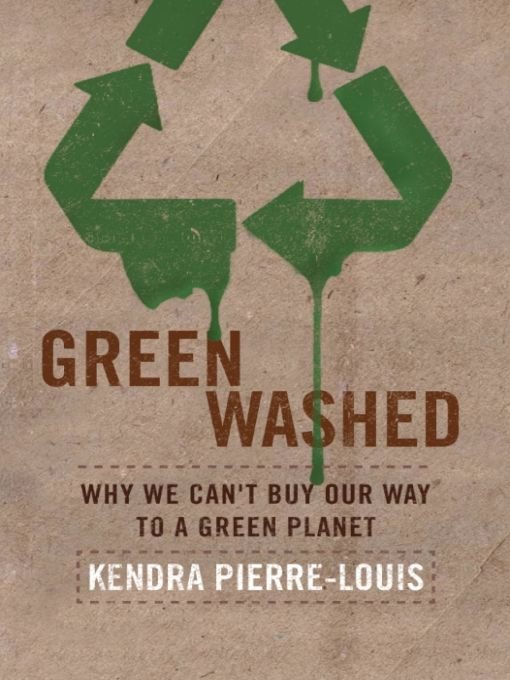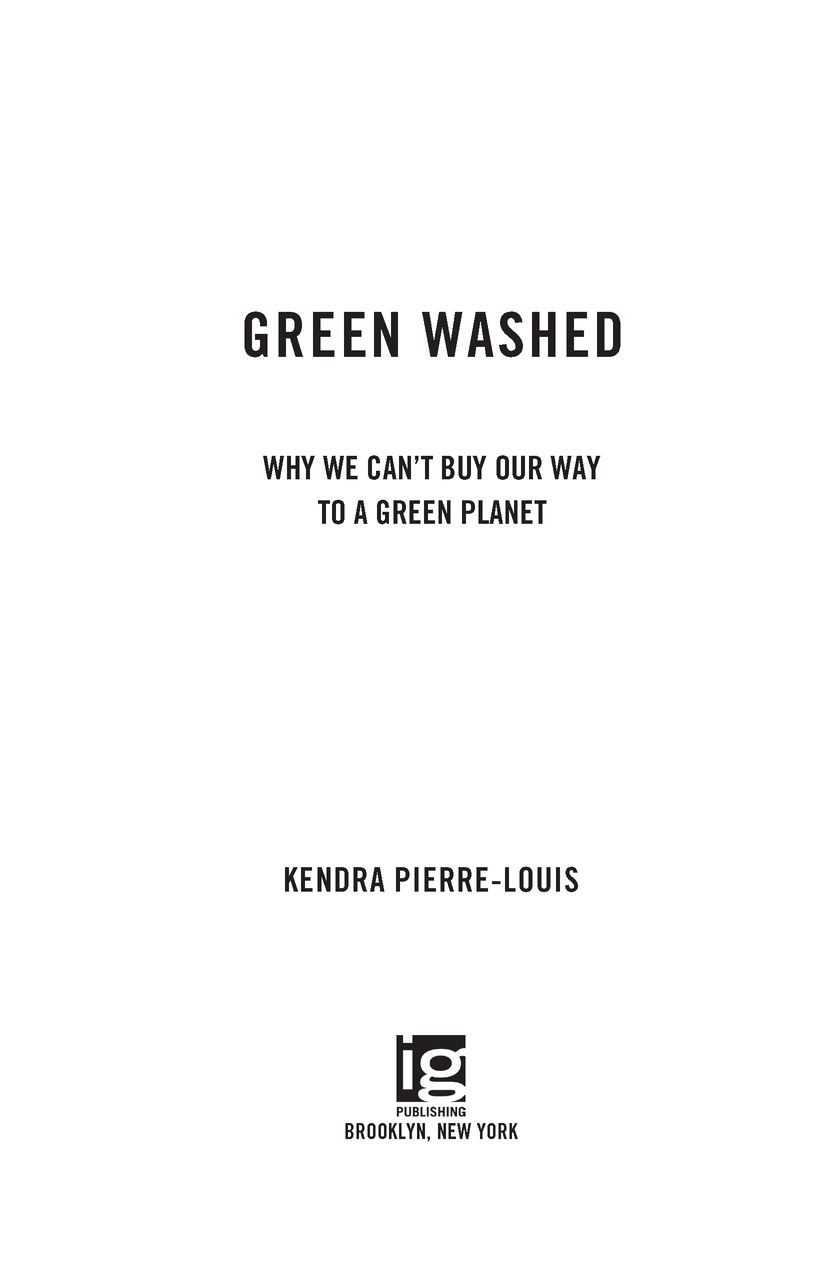Table of Contents
A truly good book teaches me better than to read it. I must soon lay it down and commence living on its hint. What I began by reading, I must finish by acting.
Henry David Thoreau
Consumption, from the Latin word consumpti meaning a wasting.
PREFACE
As I was getting gas for my car one day, it dawned on me that I no longer felt comfortable giving any of the oil companies my hard earned money in exchange for their gas. None of my choiceswhether it be the company that had caused the third largest oil spill in American history (Exxon-Mobil), the company that had precipitated one of the largest oil spills in world history (BP), or the company that had been implicated in the murder of indigenous protestors fighting for their way of life (Shell)seemed particularly desirable. However, if I still wanted to drive a car, I had no choice but to buy gas.
From experience, I have found that most people deal with these types of no-win choices in one of two ways. On the one hand, many people choose simply not to worry about their choices at all. They feel that, ultimately, theres nothing they can do to change the situation. I call this the ostrich approach based on the commonly held belief that when an ostrich senses danger, it will stick its head in the ground. Those who tend towards this way of thinking believe that if they are able to ignore the existence of something unpleasant, it cant hurt them. The problem with this approach, however, is that ostriches dont actually stick their heads in the ground. In reality, when an ostrich senses danger, it lowers its head to the ground to better blend in with the surrounding environment. Ostriches actually do see the danger in front of them, and react in a way that doesnt ignore the problem, but rather protects them from it.
The other common response to no-win choices is to avoid purchasing anything except those products that have been properly vetted and labeled as environmentally and ethically acceptable. I call this the Atlas method, as people who engage in this type of behavior have a tendency to feel as though theyre carrying the weight of the world on their shoulders. Needless to say, this method is not only exhausting, but it can also leave you paralyzed in the egg aisle of your local supermarket, incapable of choosing between eggs from chickens raised in a humane and sustainable manner but which have been placed in a plastic container, or eggs from conventionally raised chickens that are in a completely biodegradable carton (Not that I speak from experience).
Ultimately, these different approaches are not really about eggs, or gas. The real issue is why we even have to purchase gasoline in the first place, or why we have to make buying eggs a Sisyphean task when its possible to have gloriously, richly yolked eggs raised in a sustainable manner that arent housed in a container that kills marine life. Instead of spending all of our time avoiding the Witch and begging to see the Wizard, why arent we instead questioning the underlying structure of Oz?
The idea for this book came about from this very question. I wanted to stop looking at stuff in isolation and instead start examining the systems and structures that exist behind that stuff. An increasingly rich body of economic, ecologic, and psychological research supports the supposition woven throughout this book that if we want to bring our planet and the people who inhabit it to a healthy place, we have to reevaluate our relationship with stuff and with each other in a way thats far more significant than purchasing an organic granola bar instead of a conventional one, or buying eco-friendly sex toys (they do exist). While I personally make a concerted effort to engage in behaviors that I know are more sustainable, I dont in believe that by getting my produce from a local CSA (Community Supported Agriculture) instead of from the supermarket, Ive engaged in a transformative act. Sure its better, for me, for the environment, and for the farm where I purchase my produce, but its not transformative because its still an individual act within a larger unsustainable system.
The reason I have chosen to specifically focus on green products is because while everyone already knows that oil is bad for the environment and that plastic bags choke sea turtles, we seem to have faltered in our understanding of how we got to a place in our collective culture where, for example, the use of neurotoxins in shower gel seems like a completely rational idea. Many of the products we view as green may only in fact be green in comparison to the noxious nature of the alternatives. But given the scale of how ecologically, socially, and just overall toxic to our health so many of the products we purchase, ingest, and surround ourselves with on a daily basis truly are, it made me wonder by what metric exactly are we judging those so-called products green? And is that a metric that does enough for us and the planet?
Finally, what I didnt want to do in this book was to leave people in a place where they felt helpless. The environmental movement has a nasty habit of overwhelming people with depressing facts that leaves them feeling powerless unless they quit their job, move into a sustainably woven yurt heated only by body heat, and spend their days foraging for food. I was born and raised in New York City, and while my forays into the country have left me reasonably comfortable identifying some plant species, particularly the abundant and tasty ones, if I had to depend on foraging for my survival, Id be dead inside of a week. Similarly, if the only way I could get involved with the environmental movement was to aspire to some unattainable ideal of being the perfect environmentalist, I wouldnt get involved in the first place. A wise friend once told me that purity means not getting involved, and I think some people use that bar of perfection to avoid engaging altogether.
In reality, what the environmental movement needs are regular people who work in government, business, and the non-profit realms injecting sustainability in places where its not currently being discussed. While we do need to be more conscious about what and how much we choose to consume, that consciousness is a starting point, not an ending point. Fortunately, environmentalism is a school with rolling admissions. You can join in at any point and in the ways in which you most feel comfortable.
INTRODUCTION: EMPTO ERGO SUM
People who look through keyholes are apt to get the idea that most things are keyhole shaped.
Unknown
Is the glass half empty, half full, or twice as large as it needs to be?
Unknown
We are at the environmental equivalent of the United States moments from dropping the bomb on Hiroshima. We are Guttenberg before he unveiled his printing press, the ancient residents of Easter Island poised to cut down the last tree, the Bolsheviks just before launching the October Revolution. In short, we are human society on the edge of either environmental collapse or social evolutionand how and what we consume is a critical piece of that picture.
Scientists agree on this much: by nearly every measurable indicator, humanity has wrought enough environmental damage to bring our continued future (in any significant measure) into real question, unless we fundamentally change our relationship with the planet. The issue extends beyond climate change to the concept of global biological diversity. Biological diversity, better known as biodiversity, is the variability of life between and within species and ecosystems, and is increasingly recognized as a crucial indicator of and a beneficial contributor to environmental sustainability. It is, as the United Nations Environment Programmes Convention on Biological Diversity (CBD) points out, the combination of life forms and their interactions with each other and with the rest of the environment that has made the Earth a uniquely habitable place for humans. Biodiversity provides a large number of goods and services that sustain our lives.


